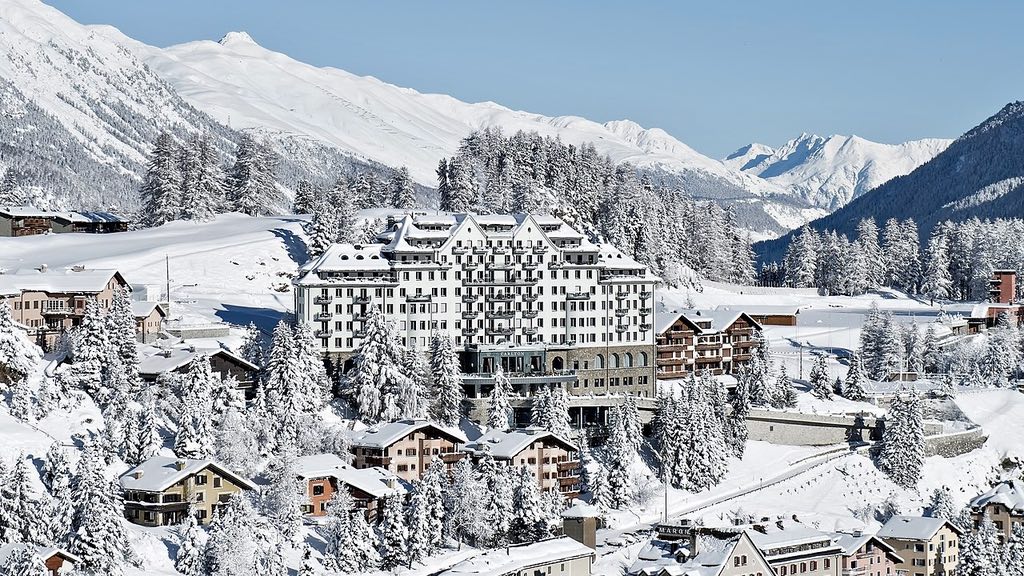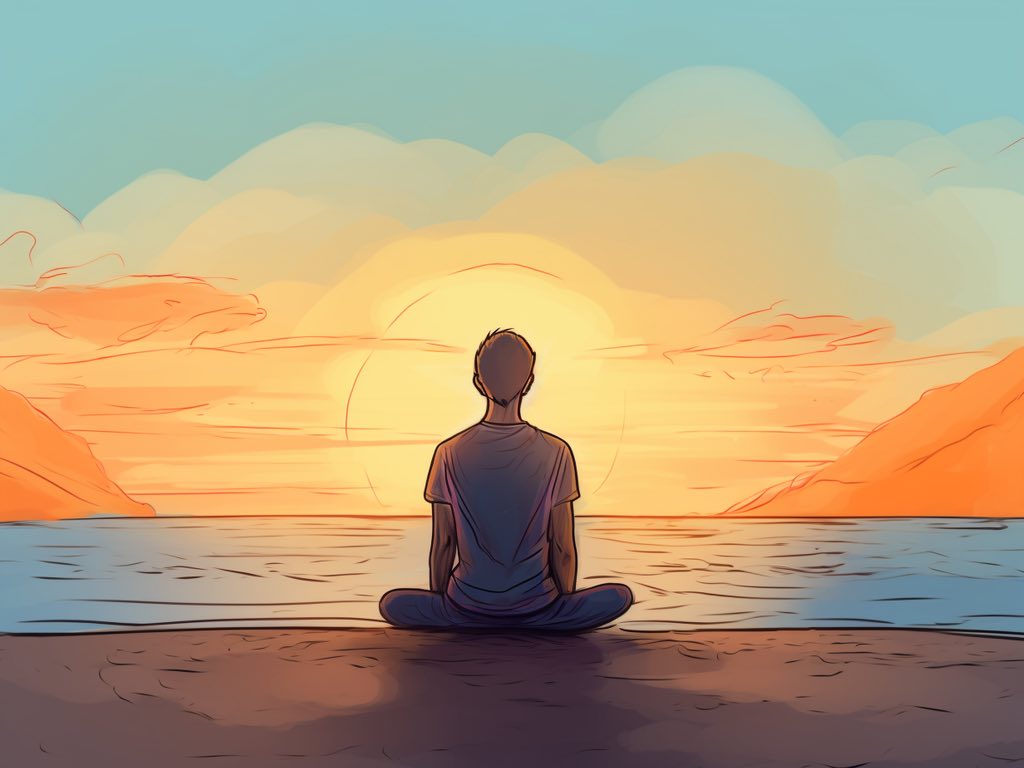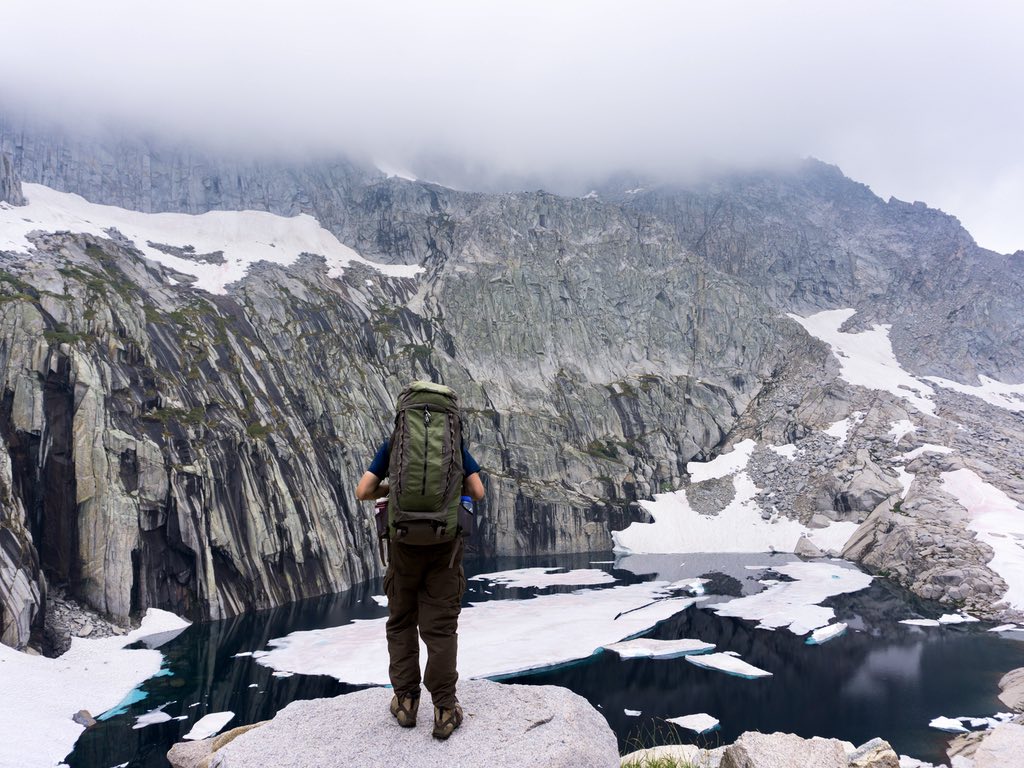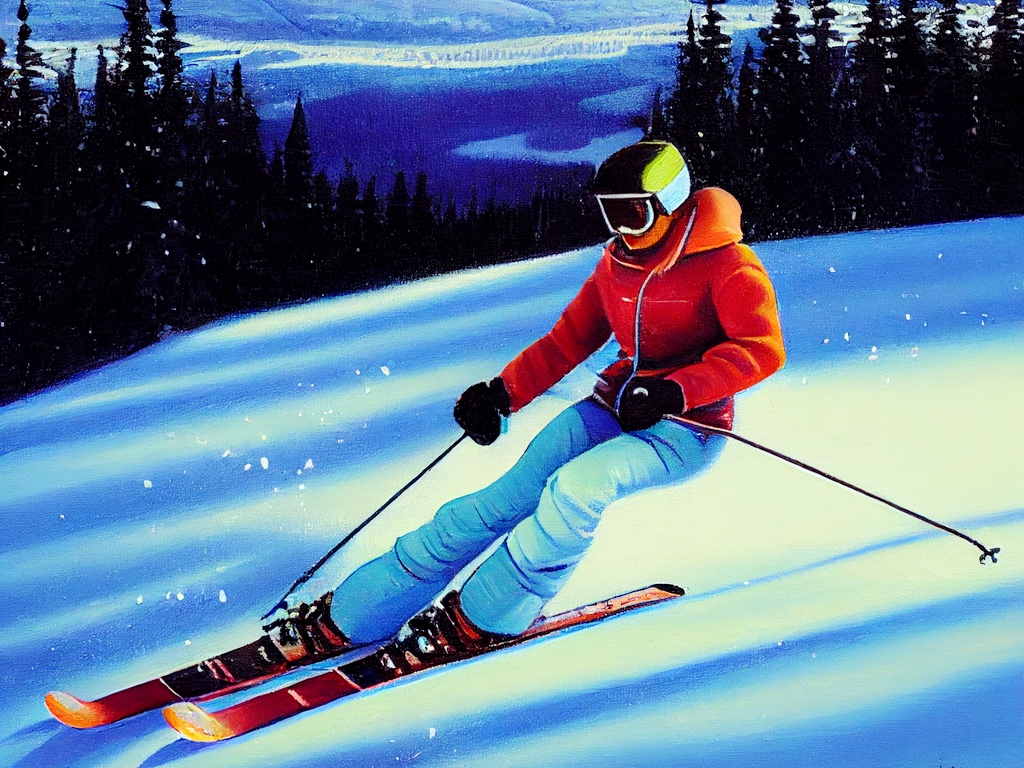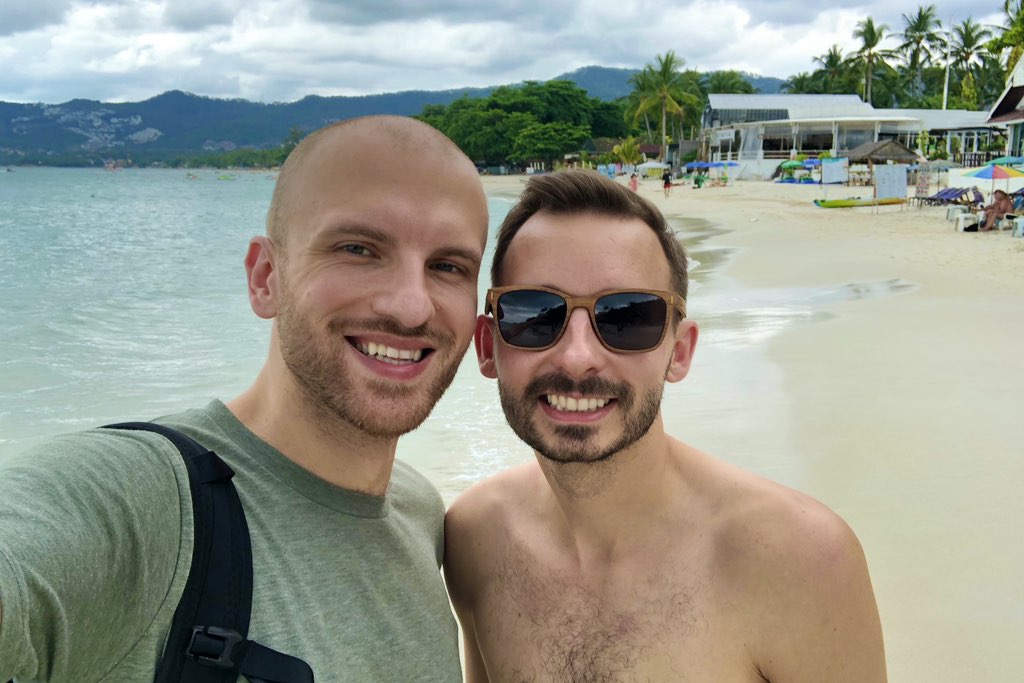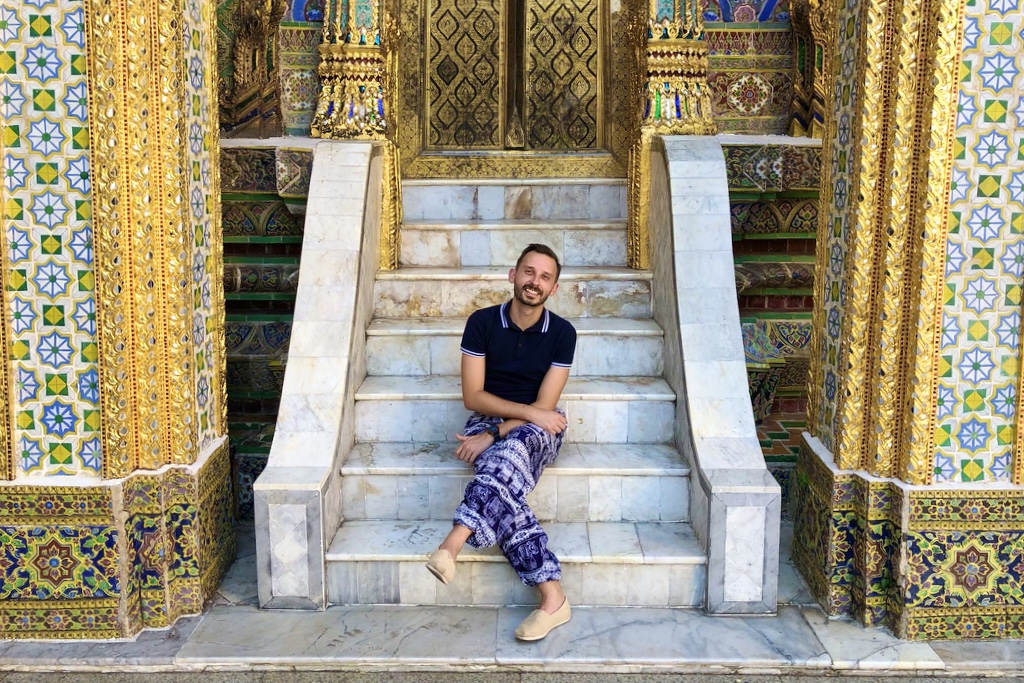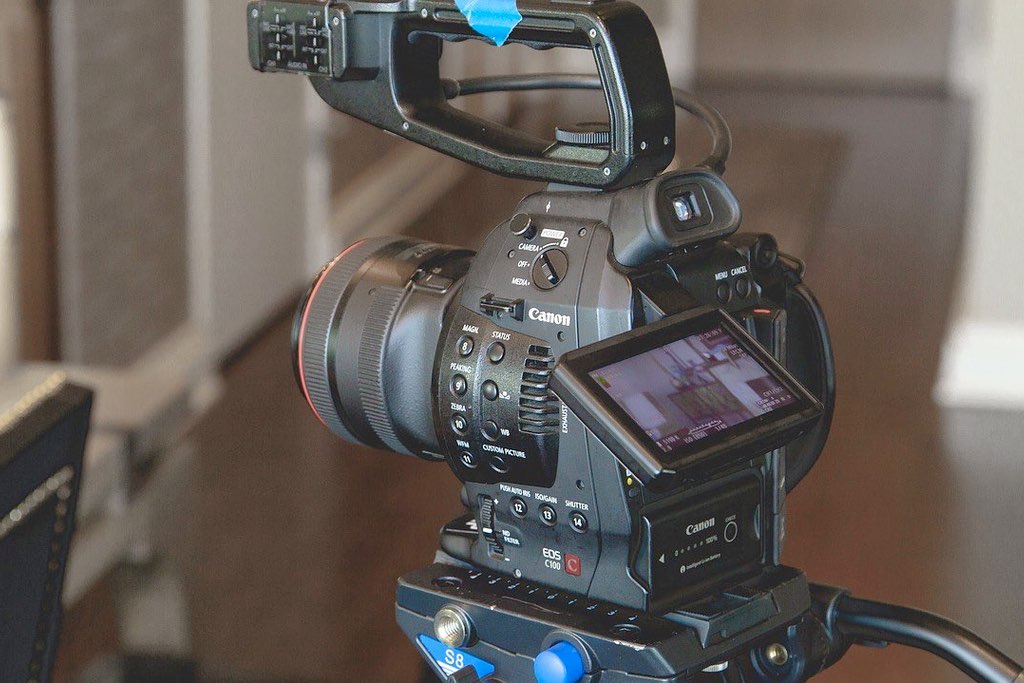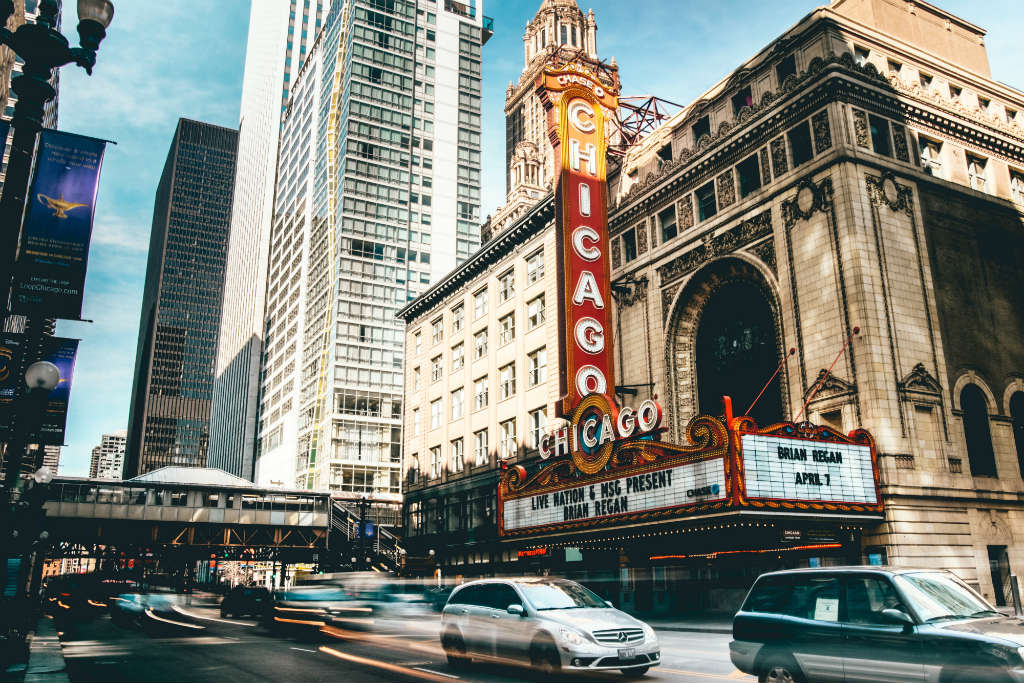Knowing how to sleep on a plane is a luxury for most travelers, and I’ll be the first to say, it’s hard. When I travel, I find it very difficult to sleep on a plane even with medication, so I researched on what are some of the best ways to sleep on planes. I want to point out that these are not foolproof, and that some travelers will always be better sleepers than others. For me, I think there is a better way to sleep on a plane if I put some effort and strategize before.
How to Sleep on a Plane
1. Change your Sleep Habits Well before your Travels
Do you know how you feel groggy for the first couple of days when you travel because of jetlag and lack of sleep? Well, you can help alleviate that feeling by planning your sleep habits ahead of time. Your goal is to match the schedule of your destination.
Say you’re traveling to central Europe, and you’re traveling from my home city, Chicago. Well, central Europe is 7 hours ahead of so you should start going to bed earlier and earlier before your trip to match the times it would be in Europe closely. That’s not always practical, but the closer you can match to the time your traveling, the easier it will be before you travel.
2. Light and Noise
It should be evident that people in general sleep better when it’s quiet and when it’s dark. This is hard to achieve, but it’s obvious to avoid bright screens, especially. Having a plane with the lights out is not always at your discretion, but if you sit next to the window, you can draw your blinds. I have read that having your seatbelt shown is a good idea so that the steward doesn’t bother you.
3. Comfort is Key
Comfort is the key because how are you going to fall asleep if you’re uncomfortable? The truth is that sitting in economy isn’t that comfortable for sleep, but a blanket, comfortable clothes, and a convenient position can do the trick. I always remove my shoes on long flights, and for some, that may seem gross, but I do have socks on, and it is way more comfortable with my shoes off. For me, I’ve had the most success when I don’t have tight clothes on and when I’m able to pull back my chair with a blanket over me. Make sure to check my “What to Wear in,” page for more tips.

4. Seat Selection can Matter
It should be evident that choosing a comfortable seat will make a world of difference, but some of us are not paying for business or first no matter what. Even in those seats, it’s not always guaranteed you’ll fall asleep right away, at least it doesn’t happen for me.
But if you have a chance to choose beforehand, obviously the middle seat is the worst. Don’t select near the bathrooms or the galley’s because they usually have a lot of activity and bright lights at all times. Windows are the best choice because you can control light and lay your head away from other people. None of these are amazing choices but are the only option if you don’t want to upgrade to business or first.
Try SeatGuru for seat selection. I do look at this before choosing seats.
5. Some Gear is Important
I’m personally not a big fan of those pillows because they take up space, and I’m not sure how effective they actually are. I guess they work for some people, but when I use them, they don’t work. What I like is noise-canceling headphones, a smartphone to add soothing sounds, and a blanket. Anything else may work for others, but I’ve tried, and it doesn’t work for me.
6. Medication May Work
I’m pro medication if it works for, and it has worked for me in the past. There is nothing like taking an Ambien and waking up with 1 hour on my long journey to Europe. But it doesn’t always work, and there is a considerable emphasis or may work. For some, melatonin works, but for others, it does the reverse effect and keeps them awake. Drinking or alcohol actually can work, but the problem is that it’s not particularly healthy, especially while traveling since flying is already dehydrating. Medication or alcohol is a mixed bag with mixed results.
7. Controlling Thoughts can Work
Controlling your emotions and thoughts can do wonders for sleeping. If you’re already tired and you can tell your brain to shut down and not overthink, it’s way easier to fall asleep. It’s like that feeling while watching tv, but you’re still able to fall asleep on the couch.
Meditation or listening to slow, deliberate music can change your brain and help you fall asleep. I find that too many thoughts are the main culprit, so your ultimate goal is to be as comfortable as possible with few thoughts.
8. Choosing Flights
This may require some research on your part, but there are some airlines and some aircraft types that are just easier to sleep on. No matter if you’re in first-class or not. I find that the new modern planes are more comfortable to sleep on because they are just so smooth. Older planes tend to rattle, especially near the windows. Hey, sometimes that may soothe people into sleeping. More modern planes also have better lighting and better control of how bright it gets in the cabin.
Also, late-night flights are generally less stressful and less traveled. I have found that they are not as loud because everybody is tired, and this is just easier to sleep. There is a certain vibe during the night that is just so much more relaxing.

9. Food and Drinks
I mentioned the drinking earlier, but diet also plays a big part in how you feel. It’s weird, but you really can’t eat the same food on the ground and feel the same on planes. You feel gassy, and in general, more blah like you’re bloated. This is common, and this is not great if you want to sleep.
This happened to me a lot, and the truth is that lighter fare food is just better to eat before you travel. Beer is okay, and so is wine, but you can’t have too much, or it will lead you to be dehydrated. The goal is to eat just enough, so you’re not hungry but not to overeat.
10. Traveling Moment by Moment
Accepting that you’re going to have less sleep, in general, should be included. Listen, you’re not going to feel as rested as if you’re sleeping your bed. Accepting that conclusion may relax people to accept that travel can be tiring and as many precautions we take, there will be some jet lag.
However, by accepting that you have no control, it may, in turn, be more comfortable to sleep. Do as you feel at the moment. If it’s late at night on a long haul flight and you’re up, watch a movie and try again later. Drink water and try again later. You can’t force your body to go to sleep if it really won’t. Overthinking it won’t help.
Realities of Travel
I’m going to implement some of these in my travel routine, especially the first idea, and see how they work. Travel is all about the individual, and things that work for me may not necessarily work for you. But there are general conclusions that work for everybody, and I think most of these tips above will be helpful. Knowing how to sleep on a plane is a skill, but it also comes down to the individual willing to give it a shot. And perhaps you drastically need to change your habits for these ideas to work!





